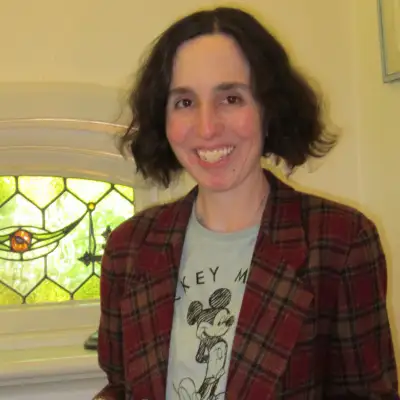Episode 75: [Value Boost] The Psychology Hack That Gets Your Data Insights Heard
Download MP3[00:00:00] Dr Genevieve Hayes: Hello, and welcome to Your Value Boost from Value Driven Data Science, the podcast that helps data scientists transform their technical expertise into tangible business value, career autonomy, and financial reward. I'm Dr. Genevieve Hayes, and I'm here again with Dr. Russell Walker, principal consultant at Walker Associates to turbocharge your data science career in less time than it takes to run a simple query.
[00:00:30] In today's episode, you'll uncover practical tools for identifying and overcoming your stakeholders cognitive blind spots. Ensuring your data-driven insights actually translate into action instead of being overlooked or dismissed. Welcome back, Russ.
[00:00:47] Dr Russell Walker: Thanks, Genevieve. Great to be back.
[00:00:49] Dr Genevieve Hayes: In our last episode, you shared with US persuasion techniques drawn from your experience as a competitive debater that data scientists can use to inspire decision makers to act. One reason why these techniques are necessary is because like the rest of the population decision makers are subject to cognitive biases
[00:01:13] my understanding is that this is something you first became aware of during your time working in the medical equipment industry. Can you tell us a bit about that?
[00:01:23] Dr Russell Walker: Sure. I was working for a company that made computer interpreted EKG machines. It was actually one of the first medical applications. Of what we thought was AI at the time, although it was really more of an expert system at that time. And I started digging into how primary care physicians actually used the interpretations of the EKGs that our software was producing.
[00:01:49] And I discovered that they really weren't interested in the finer points of diagnosing different heart problems, which was a lot of what we've been focusing on. Instead, all they really wanted to know was was their interpretation of the patient's EKG. Correct. They really just wanted that backup or confirmation of what they.
[00:02:11] Already thought and if they didn't get that, then they were just gonna send the patient to a cardiologist anyway. So how they were using the information was very different from the way that we thought that they were going to be using it when we were writing the software.
[00:02:28] Dr Genevieve Hayes: It's actually really scary to hear. It doesn't surprise me either.
[00:02:33] Dr Russell Walker: E even important life or death decisions, unfortunately suffer from cognitive bias.
[00:02:39] Dr Genevieve Hayes: Yeah, I don't have too much experience in healthcare beyond being a patient. But from my own experiences in business, I've seen. Executives who believe they're acting in an unbiased way because they're referring to data in their decision making when they're really projecting their own biases onto that data.
[00:02:59] So it's sort of like a numerical Rorschach test.
[00:03:02] Dr Russell Walker: Yes. That's a great analogy.
[00:03:04] Dr Genevieve Hayes: Yeah. So what we're talking about here, this is an example of confirmation bias which leads people to favor information that confirms their existing beliefs. What can our listeners do to overcome that?
[00:03:18] Dr Russell Walker: The best technique is you have to explicitly acknowledge those preexisting beliefs. To some extent, you have to validate them, to the extent that you can. And usually they're not completely crazy, and so you have to say something like. Yes, it's reasonable to assume when you first look at this that perhaps the extra hospitalizations that we're seeing in our claim reports are because doctors are misdiagnosing the patients.
[00:03:47] But when we looked into it further, we found that the real cause is whatever it is, it's a little bit of verbal jujitsu. Instead of confronting. The mistaken belief head on. You acknowledge it, you kind of go with it, and then you redirect the audience to thinking about it in a wider context or in a more data informed way.
[00:04:13] Dr Genevieve Hayes: So it's allowing them to save face and not feel stupid for having the incorrect belief, but then carefully guiding them to the correct belief.
[00:04:23] Dr Russell Walker: Exactly. You're avoiding. The emotional reaction of, as you say feeling stupid or feeling like they're being embarrassed. And at the same time you're playing into, people tend to agree more with people who agree with them. And so you agree with them to an extent which sets them up to believe you when you then redirect them down another path.
[00:04:48] Dr Genevieve Hayes: Now my understanding is that confirmation bias is just one type of cognitive bias, but there are others out there. What are some of the most common
[00:05:00] Dr Russell Walker: Another one is recency bias that people tend to use in their decision making more prominently information that they've encountered more recently. So if you, saw something just this morning that's going to figure more prominently into your decision making than something that you saw a week ago or a month ago.
[00:05:24] If an angry customer, just called a manager yesterday and yelled at them about some particular problem. That problem is going to be overwhelming in how they make decisions even though it might in fact be a one-off or a rare instance and they should be worrying much more about some other issue that's much more common.
[00:05:45] Dr Genevieve Hayes: It's a classic performance review dilemma. You wanna have your big wins just before your performance review, not at the beginning of the performance period.
[00:05:54] Dr Russell Walker: Exactly.
[00:05:55] Dr Genevieve Hayes: So how do our listeners overcome that?
[00:05:58] Dr Russell Walker: You've really gotta provide context. You've got to make sure that you are calling attention to a broader range of data over a wider timeframe and putting that recent issue or that recent blip into context so that people can see that yes, this happened yesterday or last week, or in the current quarter, but here's the historical information that shows that that's not really the thing that you should be most worried about.
[00:06:35] Dr Genevieve Hayes: So it might be yes, we got this complaint yesterday, but we've only had three complaints in the past 12 months.
[00:06:41] Dr Russell Walker: Exactly. So things like Pato charts those kinds of things can be very helpful in dealing with that.
[00:06:48] Dr Genevieve Hayes: If our listeners wanna implement just one technique tomorrow to help them overcome cognitive biases in their organization's decision making process, what would you recommend?
[00:07:00] Dr Russell Walker: Always know your audience and anticipate what biases or, preconceived notions that they might be dealing with, and then tailor your. Presentation or your reporting to address those. A great thing to do is have one-on-one meetings if you can, with your key stakeholders and just bounce things off of them in an informal, private setting so that you can get an idea of how they're going to react rather than throwing something out in a group setting.
[00:07:36] Where if you encounter resistance because of some of these. Cognitive biases or other preconceived situations that you don't know about? It's much more difficult to deal with
[00:07:47] Dr Genevieve Hayes: So the pre-meeting meeting,
[00:07:49] Dr Russell Walker: pre-meeting. Meeting Exactly.
[00:07:51] Dr Genevieve Hayes: That's a wrap for today's value boost, but if you want more insights from Russ, you are in luck. We've got a longer episode with Russ, where you'll learn even more techniques to persuade your stakeholders to act this time taken from the world of competitive debating. And it's packed with no nonsense advice for turning your data skills into serious clout, cash, and career freedom.
[00:08:18] You can find it now wherever you found this episode or on your favorite podcast platform. Thanks for joining me again, Russ,
[00:08:26] Dr Russell Walker: Thank you.
[00:08:27] Dr Genevieve Hayes: and for those in the audience, thanks for listening. I'm Dr. Genevieve Hayes, and this has been Value Driven Data Science.
Creators and Guests
![Episode 75: [Value Boost] The Psychology Hack That Gets Your Data Insights Heard](https://img.transistorcdn.com/1S_-FHWTSYLwlZw4Bul2D1FFcsDYJwGa0xZKfIO2hbw/rs:fill:0:0:1/w:800/h:800/q:60/mb:500000/aHR0cHM6Ly9pbWct/dXBsb2FkLXByb2R1/Y3Rpb24udHJhbnNp/c3Rvci5mbS80YzU3/MWI0ZjdlNDA1OTYz/ZGE1OWEyYTEyODk4/NDQ2NC5qcGc.webp)

